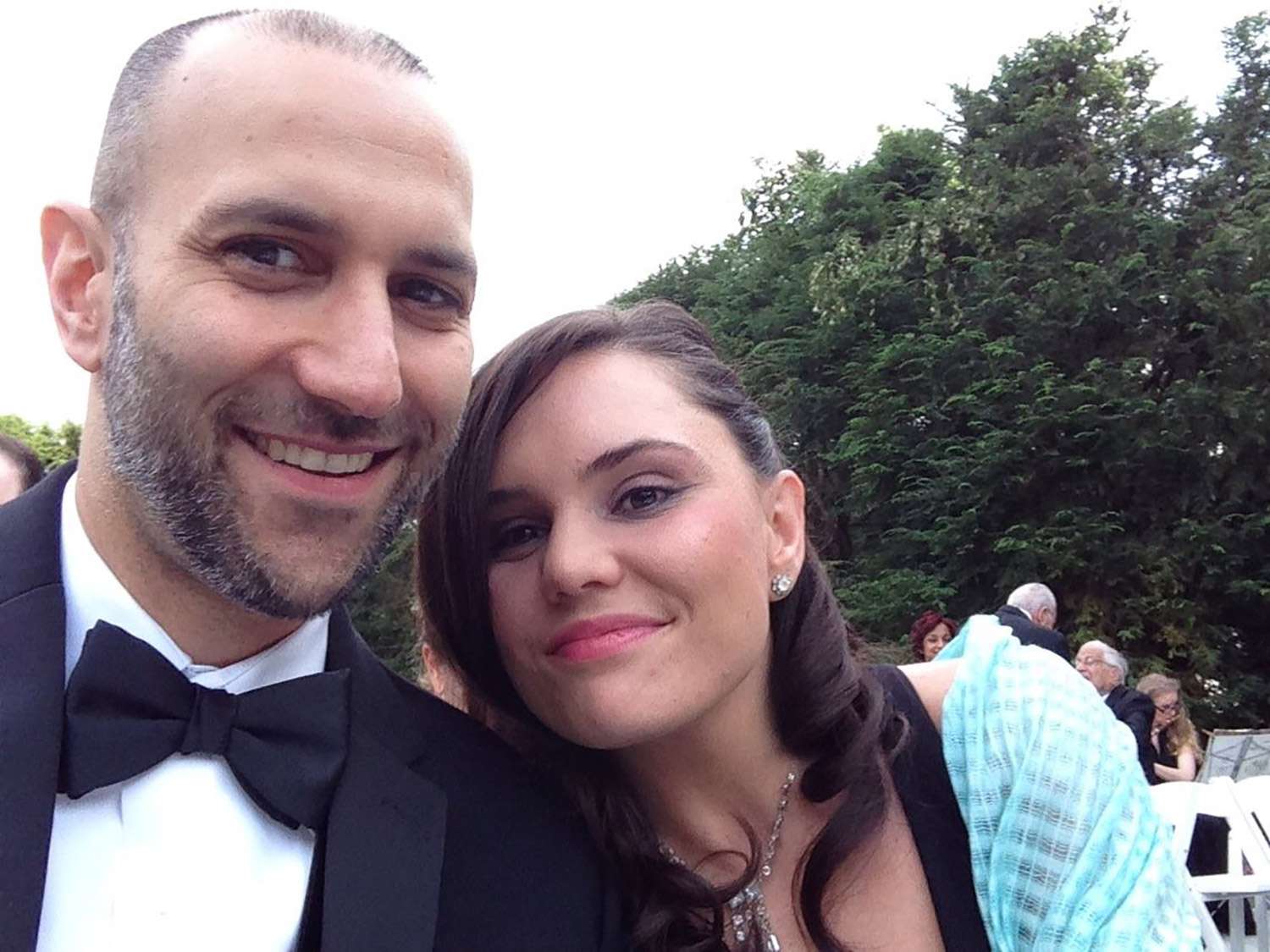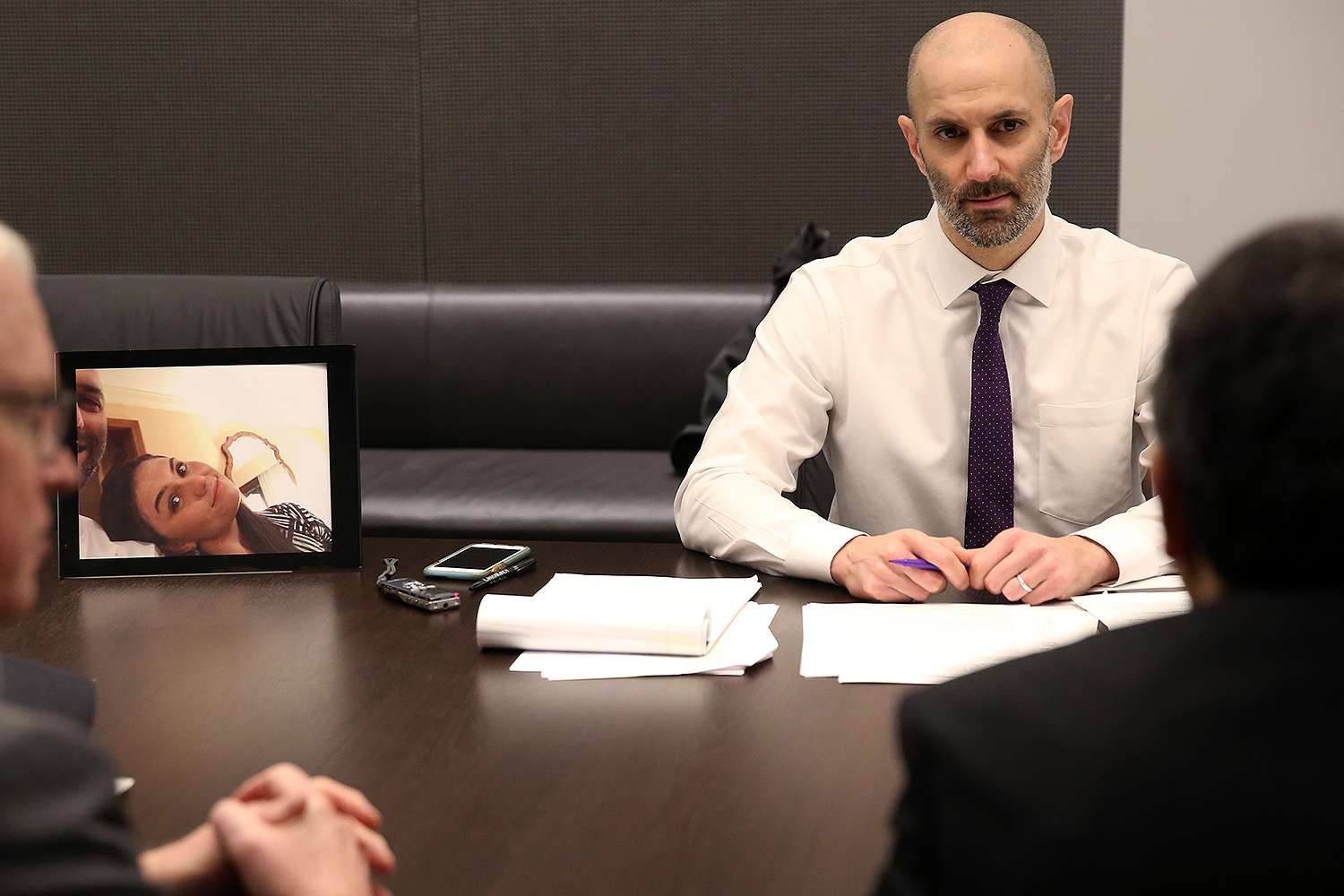A man who fought tirelessly to help pass legislation in honor of his late wife finally got to see his efforts pay off — and he's hoping the new law will now save others' lives.
Peter DeMarco lost his wife Laura Beth Levis in 2016 after she suffered an asthma attack outside of a Massachusetts hospital alone, according to an essay he penned for Boston radio station WBUR.
DeMarco said Levis, 34, was just steps away from the emergency room entrance but was unable to find the correct door.
"Confused by this, Laura tried the wrong door, which was locked," DeMarco wrote in his heartbreaking piece. "Her attack overcame her before she could make it to the right door."
In the time since that day, DeMarco has been fighting on his wife's behalf to pass a piece of legislation that requires every ER entrance in Massachusetts to be easy to find and access.
The bill — aptly named "Laura's Law" — was written to establish "first-ever standards for signage, lighting and the security monitoring of doors," which DeMarco hoped would prevent this incident from happening again.
And on Jan. 6, following weeks of DeMarco and his loved ones making hundreds of phone calls and writing emails to officials in support of the law, the bill finally passed.
"It was the victory I'd fought so hard for, but, of course, it was bittersweet," DeMarco wrote. "Laura is gone. After some tears, I just felt relieved that the journey was over."
That journey turned out to be quite the rollercoaster, as DeMarco noted in his WBUR essay.
He first started advocating for Levis in 2018 with a touching tribute called "Losing Laura" that he wrote for The Boston Globe. DeMarco wrote in depth about what happened to his wife, and how the story he was told about her death changed over time.
According to him, hospital staff claimed Levis never made it to the ER and she collapsed on a nearby street or in a parking lot on the outskirts of the property. Later, he learned she collapsed on the doorsteps of the ER while on the phone with 911.
"Help was just a few feet away, on the other side of that door. But, incredibly, that help never came," DeMarco wrote in the Globe piece, before pleading for a change in health care "to create environments that minimize mistakes."
While he was determined to share Levis' story so "no one else would ever die as my wife did," DeMarco acknowledged in his WBUR essay that "it took more than love and determination to pass Laura's Law."
Just days before the end of the legislative session on Jan. 5, DeMarco said he learned "there was a 50/50 chance the bill would die in committee."
"I began to fear that all our work, and Laura's awful death, would not change a thing," he recalled. "The legislative process is frustratingly slow even without a pandemic; with one, hundreds of smaller bills like Laura's Law stood little chance of being voted on before Jan. 5."
It was then that his bill sponsors, state Rep. Christine Barber and Sen. Pat Jehlen of Somerville, suggested he flood the State House with calls, letters and emails pushing for Laura's Law to be passed.
So he turned to his supporters for help — and was overwhelmed by what soon unfolded.
Thanks to a "fierce force" — comprised of DeMarco and Levis' friends, family members and former teachers, teammates and classmates, as well as hundreds of strangers with the Asthma and Allergy Foundation of America and Boston Center for Independent Living — his plea was heard.
"By nightfall on Jan. 5, our army — Laura's army — had battered House Speaker Ron Mariano and Ways and Means Chair Aaron Michlewitz with more than 1,700 emails and nearly 500 phone calls – most of those coming in the final two days," DeMarco wrote.
"At 11:28 p.m., with dozens of friends and family members watching from their homes as well, Senate Bill 2931, 'An Act Ensuring Safe Patient Access to Emergency Care,' was voted upon by the House — and passed unanimously," he continued. "In the wee hours of the morning, the Senate, which had approved its version of the bill in October, officially sent it to Governor Charlie Baker's office. He signs it Friday."
As he reflected on the big moment, DeMarco couldn't help but credit the power of his "army" and democracy for ensuring that Levis did not die in vain.
"It took a lot of people doing the right thing for the right reason," he finished in the WBUR essay. "It took … democracy."
"Were it not for all their help, my mission last week to create something positive out of a terrible tragedy might have failed," DeMarco went on. "And if it had failed, I think in a small way, democracy would have failed, too."
But, he proudly added, "There wasn't a chance I would give up."
Source: Read Full Article


